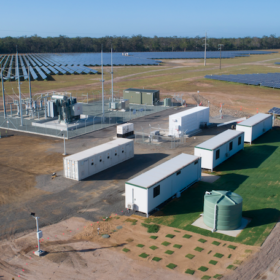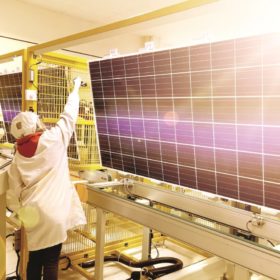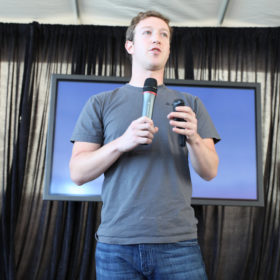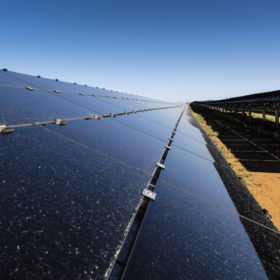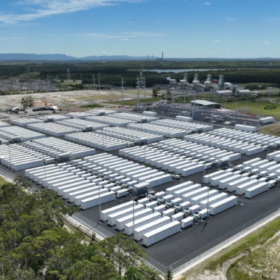Super-grids vs prosumer states: storage may decide the battle
Indra Overland, head of the Center for Energy Research at the Norwegian Institute for International Affairs, explains how the world’s future energy landscape may include pan-regional super-grids. However, prosumer states seeking energy independence could also be in the mix. According to Overland, the two developments will go hand in hand and the balance between them will be determined by the competitiveness of storage technologies.
Canadian Solar revises up estimates while giving PG&E update
The Ontario firm has revised figures for shipments, net revenue and gross margin after seeing better-than-expected trading in the final three months of 2018.
Corporate clean energy smashes records
Companies in the United States accounted for more than 60% of the clean energy deals signed by corporations worldwide last year, according to BloombergNEF. A proposed renewable portfolio standard for Chinese business, though, could turn the picture upside down in a year’s time.
PV Info Link: Jinko the largest module maker of 2018
According to the Taiwanese analysts, JA Solar was number two, followed by Hanwha Q-Cells and Trina Solar in joint third. The ten largest module makers met around 70% of demand, with 66 GW of shipments.
‘No alternative to 100% renewables’
Transition to a world run entirely on clean energy – together with the implementation of natural climate solutions – is the only way to halt climate change and keep the global temperature rise below 1.5°C, according to another significant study.
Solar will rebound this year with more than 100 GW of new capacity
Wood Mackenzie’s number-crunchers are the latest analysts queueing up to predict a bumper year ahead for PV, with falling prices, rising efficiency rates and booming markets outside China all on the cards. And it could be a make-or-break year for mega-projects, says Wood Mac.
Long read: Double glass can spell double trouble
Glass-glass modules are built to survive the toughest conditions and can deliver module lifetimes far exceeding the 20-30 years expected of glass-foil. The module concept is ideally positioned to catch the building bifacial wave, but only if quality concerns are addressed, warn some experts in the field.
New products contribute to another record year for sustainable finance
BloombergNEF figures show financial vehicles linked to environmental and/or social benefits amounted to $247bn worldwide in 2018. The US led the way, almost entirely because state-backed mortgage provider Fannie Mae issued $19.8bn worth of green home loans.
14 PV trends for 2019
Crystal-ball gazing is dangerous in a sector as fast moving as PV. But that hasn’t stopped pv magazine’s international team of solar reporters from compiling a list of the top 14 solar PV and energy storage trends expected to characterize 2019. What do you think? Have we missed anything?
2018 pv magazine Annual Award winners announced
pv magazine is pleased to announce the winners of our inaugural Annual Award. Winners will be recognized in a ceremony alongside the Middle East Solar Industry Associations’ Solar Awards, during the World Future Energy Summit.
